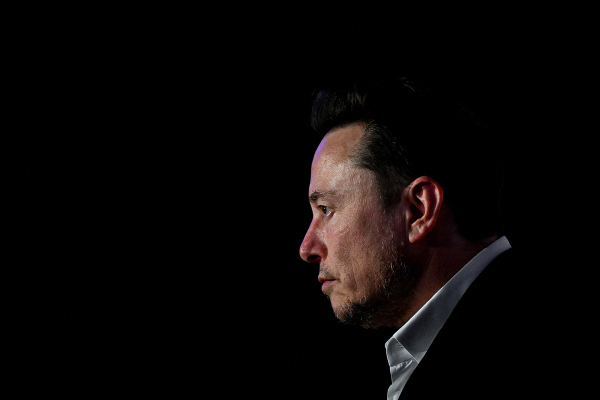NYT Columnist at Q Conference: Bad Religion, Not Atheism, Replacing Christianity
The New York Times' youngest-ever op-ed columnist and also one of the few conservative Christians at the esteemed newspaper, Ross Douthat, made the case at the Q Conference Tuesday evening that it is not atheism that is replacing American Christianity, but bad religion.
During an interview with Michael Cromartie, vice president at the Ethics and Public Policy Center in Washington, D.C., Douthat presented key points from his soon-to-be released book, Bad Religion: How We Became a Nation of Heretics, in which he examines the historical story of institutional Christianity in America and then makes the case that heresy – which includes the prosperity gospel – is threatening American society.
"The overview basically makes the case that what has happened in American religion over the last 50 years is not that the country has grown more secular in any meaningful way. And in fact, if you look at certain factors of religiosity in American life – people reporting direct experiences of God and spiritual experiences, even belief in miracles and afterlife – there is evidence that America is more religious now than in 1945 or 1955," said Douthat at the Q event in Washington, D.C.
"But it is also less – I used the word heretics in my subtitle because I think America is less orthodox Christian than it used to be. And that is driven in large part by the decline of the institutional Christian churches – both Catholic and Protestant."
The mainline church has more or less collapsed and the Roman Catholic Church is in a slow but steady decline, observed the Catholic columnist. And while the evangelical church has stepped into the void, there appears to be a "ceiling" in its appeal and ability to bring people into its fold.
Thus making room for heresy in America's religious landscape, Douthat asserts. The author examines heresy in America by looking at the prosperity gospel – the relationship between money and religion in American life; therapeutic religion – which includes Elizabeth Gilbert's book that inspired the Julia Roberts-starring film "Eat, Pray, Love," and the spirituality pushed by Oprah Winfrey, Eckhart Tolle, and Deepak Chopra; and finally, Douthat looks at politics and religion and the politicized heresy promoted by both sides.
For the prosperity gospel chapter, Douthat revealed to the Q audience that he starts with Joel Osteen and also talks about Trinity Broadcasting Network.
And for the politics and religion chapter, the author noted how different this presidential election looks from a religious perspective. Obama previously attended a church headed by the Rev. Jeremiah Wright, whose "highly politicized theology was self-consciously at odds with much of historic Christian practice and belief," writes Douthat in an April 8 op-ed based on his forthcoming book. And now, Obama is an "unchurched Christian." Likely Republican nominee Mitt Romney is a member of the Mormon church, which is still looked upon with suspicion by most Americans regardless of political affiliation.
Only Rick Santorum looks relatively similar to the traditional Christianity of half a century ago, but "in a nation as religiously diverse as ours, a staunchly orthodox Christianity can seem like the weirdest heresy of all," he writes.
Cromartie also steered Douthat into discussing same-sex marriage, the sexual revolution and why Christians have a hard time to articulate their case against homosexuality. Christians have a hard time explaining why homosexuals shouldn't marry because of the state of heterosexual marriage, Douthat said, particularly in a culture where no-fault divorces exist.
"Christians ended up in the position of basically saying, well, we have a culture where marriage means whatever people want it to mean," the New York Times columnist said. "And heterosexuals are more or less going to do what they please, but we are holding the line for this 2 percent of the population that historically have been stigmatized and persecuted."
The annual Q Conference, founded by young evangelical leader Gabe Lyons, brings together some 700 Christian participants from April 10-12 to the Andrew W. Mellon Auditorium in downtown D.C. to hear prominent church and cultural leaders give short presentations with the aim to spur discussion and help Christians think of innovative ways to shape the church's future role in culture.
The interview session between Douthat and Cromartie was only 18 minutes long, the most given to any Q Conference presenter or panel. The Q format only allows three-, nine-, or 18-minute long presentations.
Douthat, who writes mostly on politics for the Times, concluded with a warning note during an election year: "The most important thing for Christians in my line of work or who are directly involved in politics is to be always be aware that it is staggeringly unlikely that the particular policy positions, of a particular party, of a particular time and place, matches perfectly with God's will for humanity," Douthat stated. "And therefore, if you are a Christian involved in politics, you have an obligation to keep at the forefront of your mind that there must be at least one place where you think God has a different view from your party."





















